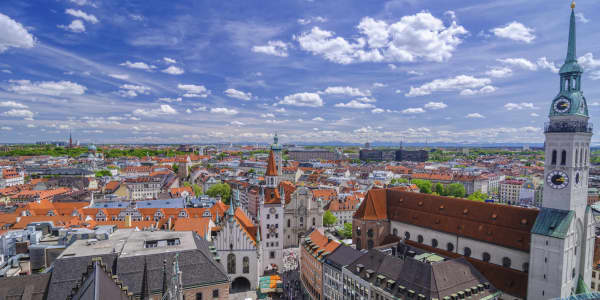
The Formula One Grand Prix has become one of the highlights of the Singapore events calendar. But for one observer, the real significance of the event comes from what it says about the growing use of data and technology in the city state.
Singapore is a great example of a 'smart nation' – one that uses data to enhance services – and that was highlighted during the F1 race in September, says Steve Leonard, executive deputy chairman at the Infocomm Development Authority of Singapore.
(Read more: 15 surprising global technology cities)
"To have data collected and used for the purpose of improving performance, which is what the smart nation concept is about, we need to think about how to capture it, move it and interpret it," he told CNBC Asia's "Squawk Box" on Tuesday.
"A great example of this is the Formula 1 night race that took place a few weeks ago. Pit crews shouted out instructions based on the data the cars were generating each time they went around the track," he said.
"The Mark Webber team was telling him to try and take care of the engine a few laps before the finish because they could see from the data that the engine was in danger of breaking down and two laps before the finish it exploded," he added, referring to the F1 race driver.
The Infocomm Development Authority of Singapore aims to enhance the use of technology and data to improve the provision of services such as health care and transportation in a city, where infrastructure has come under pressure in recent years as a rise in immigration boosts the country's population.
(Read more: Latest innovations for the future's eco-cities)
Singapore has a population of roughly 5.4 million, up from about 4.03 million in 2000, according to government data.
As the world population grows and concern about dwindling resources and climate change increase, there has been a push globally towards creating more sustainable cities.
"We think Singapore is a great model for a smart city and we're calling it a smart nation because it is a city state," said Leonard.
(Read more: Could cities of the future have free public transport?)
"We're trying to make sure we are as efficient a nation as possible. (Because of high population density) we have to use energy efficiently, make sure transport is efficient, so part of that is making use of data efficiently," he added. "If you don't use the data well then that's not smart."
On the subject of respecting privacy, Leonard said there was a distinction to be made between intruding on a person's privacy and using data anonymously for the purpose of improving public services.
"Privacy of information is a foundation of anything going forward. There is a difference between privacy and anonymity – the information you don't mind giving out if it will lead to improvements," Leonard said.
—By CNBC.Com's Dhara Ranasinghe; Follow her on Twitter @DharaCNBC





